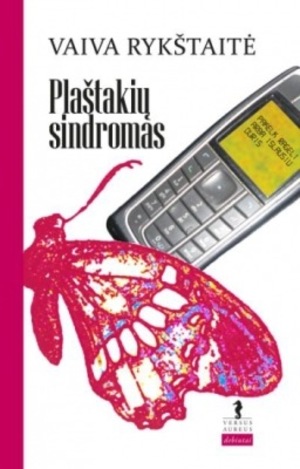ABOUT NON-POPULARITY OF POPULAR LITERATURE 0
Discussion of the group of literature critics ŽirklionisMindaugas Grigaitis, Dovilė Paškevičiūtė, Urtė Sakalytėwww.kamane.lt , 2010 04 14 (Extracts from the discussion are presented in English)Mindaugas. Many admirers of literature classics are concerned about the spread of popular literature. The level of literary and cultural consciousness falls with the increase of the number of “low literature” texts ostensibly. There is some truth in such statements; still, the criticism of popular literature is often pointed against the existence of such literature in general. There is no criticism which would analyse the Lithuanian popular literature seriously yet. One or another article appears sometimes; however, we cannot speak about the direction of popular literature criticism. The problem of (under)assessment of popular literature encourages to analyse this situation more thoroughly. Dovilė. The problem of popular literature criticism exists and is really painful. Some gap between critics and the creating and reading community may be felt in the field of contemporary literature. It seems that critics speak for themselves and creators – for themselves. There is no dialogue. Meanwhile, criticism of popular literature does not exist at all.Urtė. Criticism is important for popular literature as it may help to analyse such literature, divide it into genres as there is much of diverse popular literature nowadays.Mindaugas. I agree that criticism of popular literature may not be based on aesthetical criteria only. I believe that our academic literature critics should refuse their personal literary hierarchy and admit that if works of, e.g., I. Jonušutė or V. Rykštaitė are read, the personal position is not sufficient for evaluating them. Literature is read not only at universities or institutes, not all readers live with texts of “high literature”.Urtė. A well-written text is a text that does not cause resistance. This law may be applied for the professional and popular literature. True, it is sometimes hard to establish the limits between professional/popular literature. The novel “Love Conquers Everything” by V. Normanas and R. Nabus left the biggest impression from books read lately to me. The book may not be called popular literature only, as the reading of the book and the analysis of reasons of its appearance takes much time.Mindaugas. The impression created by novel “Love Conquers Everything” was similar like the impression created by the novel of the same authors “Grave of Nostradamus”: the text was created by the conscience full of literature experiences and unfulfilled neurotic dreams rather than on the basis of personal experience. The manner of writing of the authors creates the impression that life and love is realised by the most primitive layer of consciousness.Dovilė. Moving from the strange phenomenon as “Love Conquers Everything” to the female literature world, one may understand that it is not pretentious amateur writing but real popular literature – easy to read, without searches for deep meanings, easy to forget.Mindaugas. Popular literature is written by people who do not live for texts and in texts; and the target audience is readers for whom literature is not professional or important activity in life. And, if readers really life works of I. Jonušytė or V. Rykštaitė, we may only state that such literature exists and analyse why and how it exists. A critic should keep his personal position but refuse pretence to the only truth.Dovilė. No matter what literature it is, it should be of high quality. Many things are unnatural in the novel of I. Jonušytė “White Shadow”. The book is valuable as a fashion adviser; otherwise it is sweet and banal with details of perfect life. For me this book reminds writing for the purpose of writing rather than writing with the craving to say something. Meanwhile, the novel of V. Rykštaitė “Butterfly Syndrome” reminds of novels on teenage themes read in teenage years; only the truth of life is more naked and harder here. The stories of I. Jonušytė and V. Rykštaitė are really feminine and Lithuanian: such stories are shown on the TV every day. Mindaugas criticised these novels as an academic intellectual; still, looking from the context of popular literature, the novels may be called simply week.Urtė. The novel of V. Rykštatė differs from the novel of V. Normanas by easy reading, involving text and popular themes. Such a novel without literary pretence, written in fluent and easy language could be called popular literature. The situation is similar with I. Jonušytė too: she also charms by her simplicity sometimes. Speaking about the reader, these could be pupils of higher forms as later themes analysed in the novels would become non-actual.Mindaugas. In summary, we have to admit that it is impossible to establish universal criteria of popular literature evaluation. The academic look is not sufficient, one has to empathize with the needs of a reader. Academic criticism should overcome its complex of Narcissus and should not consider itself the highest caste of readers. As for popular literature, the critic should be an anthropologist more than a philologist, i.e., the observer and commenter rather than a peremptory evaluator.Urtė. Popular literature is part of popular culture. Therefore, criteria of high culture are not valid for it. Sometimes a “shallow” book is wonderful rest. Therefore, criticism should change and search for a new attitude to popular literature.Mindaugas. Thus, we make a conclusion that criticism should change, and we should continue searching for ways to evaluate popular literature without overestimating and underestimating it.

